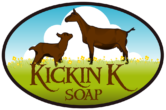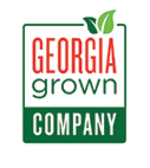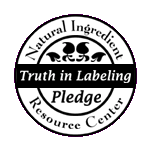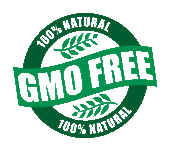Our promise to you is that we will deliver 100% Natural skincare that works.
We only use ingredients that are minimally processed and derived from nature in every product we make.
We list every ingredient we use in our products.
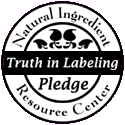
So what does All Natural, Sustainable, Hand Crafted mean to us? More importantly what does it mean to you?
There is no “legal definition” of natural: When we talk about natural what do we mean?
Our definition of 100% Natural originally came from the FTC (but was never adopted) and it is the best one I’ve seen “an ingredient may be called “natural” only if it contains no artificial or synthetic ingredients and has had no more processing than something which could be made in a household kitchen.” We would also add to that no GMO ingredients, no synthetic colors or fragrances no parabens. You can find a more complete listing of what we consider natural at The Natural Ingredient Resource Center The one possible exception which is given an exception for “pure soap” by NIRC is lye, Even though there is no lye left in the finished product we list the lye (sodium hydroxide) in the ingredients just as we list every ingredient we use. We don’t have propitiatory scents or just list parfum or fragrance.
What do you mean by Sustainable? We try and operate our business in the most sustainable manner we can. We source our palm (and other) oils from fair trade sustainable sources. Our goat milk comes from our small herd of Oberhasli dairy goats raised on browse, local hay, and small amounts of organic alfalfa pellets fed when on the milk stand. Since our first website in 2004 we have used an internet hosting provider that used over 100% wind power, Our business cards are printed with waterless ink on recycled paper, Our boxes are recycled paper. Whenever we have an opportunity we choose a sustainable option.
What’s so great about Handcrafted? Commercial soap is made by hot process it can be made very quickly often with cheap oils, fillers, added detergents, etc. Also glycerin is a natural by-product of the soap making process. It is a humectant (it attracts and retain moisture on your skin) and acts like a natural lotion in the soap. Most commercial soap manufacturers remove the glycerin from the soap, process it and then sell it to other industries where it is used in pharmaceuticals, foods, cosmetics, and other products. With handcrafted soaps, glycerin remains in the soap. Our soap is also made with food grade sustainable oils (all new oils purchaser are certified organic). The end result is mild, pure soap that gently cleanses your skin without being harsh, irritating or drying.
Cold Process Small Batches: We only use goat milk and no water in our goat milk soap. Because of this we actually use a low temp cold process soap. When the lye is added to the liquid the reaction is to cause the liquid to heat up. Milk heats hotter and faster than water yet the sugars will also burn very easily. People choose to get around this in different ways. Many mix the lye with water first once it’s 100% dissolved they cool it down and then add the milk. Giving them a 50/50 milk/water. Some simply use water and then at trace (the stage you pour the soap at) they add in powdered milk. We use 100% goat milk which necessitates working with frozen milk in an ice bath. Our soap also goes into the freezer for several hours after pouring as it will continue to gain heat through the saponification process. This low temp method of processing the soap not only prevents burning the sugar in the milk but also helps to keep the essential oils from flashing off. Essential oils not only don’t have as strong a scent as fragrance oils but also usually have a lower flash point. All of this slows the process down. Hot Process soap is ready in hours, regular cold process 4-6 weeks. Our Low temp processing 6-8 weeks or longer. We can never pour the liquid goat milk into the soap or the soap into a large 50# block mold as I saw on a You tube video. We pour our soap in 4# molds. It is a much more time consuming process but we feel the end product is well worth it.
About Lye
The Chemistry of soap making: When fat is combined with lye the chemical reaction called saponification occurs. Saponification actually means “soap making” this reaction yields 3 molecules of soap (salt) and 1 molecule of glycerin (glyceryl/alcohol). Commercial soap may have any other combination of ingredients included or may actually be a detergent not a true soap. Even when it is a true soap commercial soaps remove the glycerin as a byproduct and then either sell it to you in lotion or cream or to many other industries including the medical industry.
But I buy soap that doesn’t have lye in it. There are several reasons you may buy soap with no lye listed. Lack of knowledge of the soap crafter. I have friends that have told me they don’t have lye in their soap because they make glycerin (also called melt & pour) soap. Glycerin (M&P) soap is simply lye soap that has added chemicals that make it so you can melt it in a microwave or a double boiler and pour it into molds. The soap crafter doesn’t have to mess with lye and technically the soap no longer has lye in it so they are correct “from a certain point of view”. They list the finished ingredients so instead of saying Coconut Oil, Palm Oil, Olive Oil, Sodium hydroxide, they list sodium coocate, sodium palmate, sodium olivate or they just list saponified oils. However you also have glycerin and any unsaponified oils and you don’t know how much so you can’t really list them in the proper order. Even though true soap is exempted from FDA requirements to list ingredients if it has an ingredients list it should be in order. And last but not at all least maybe it’s not “true soap” it could actually be a detergent which wouldn’t have lye and still be labeled soap.
